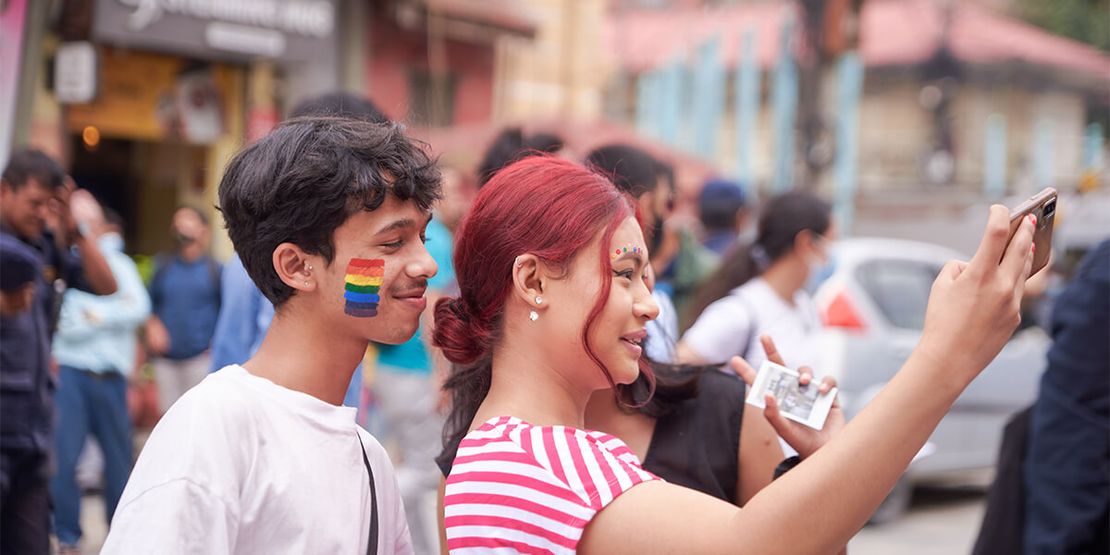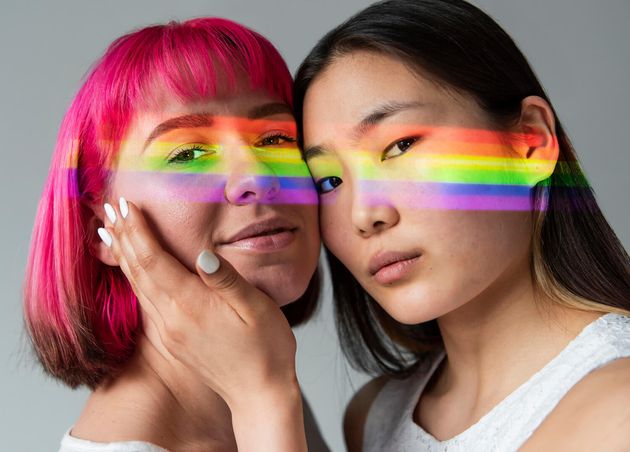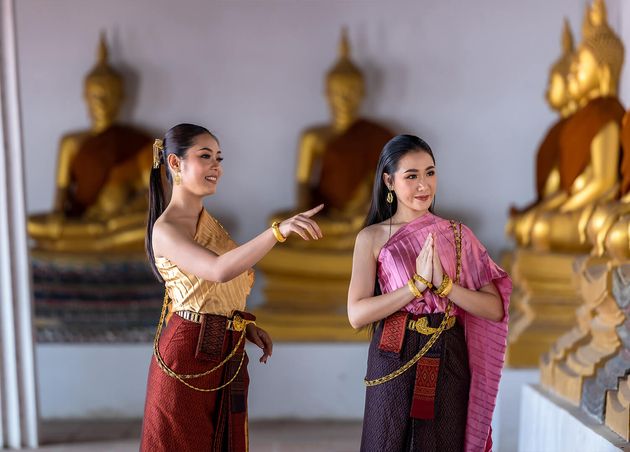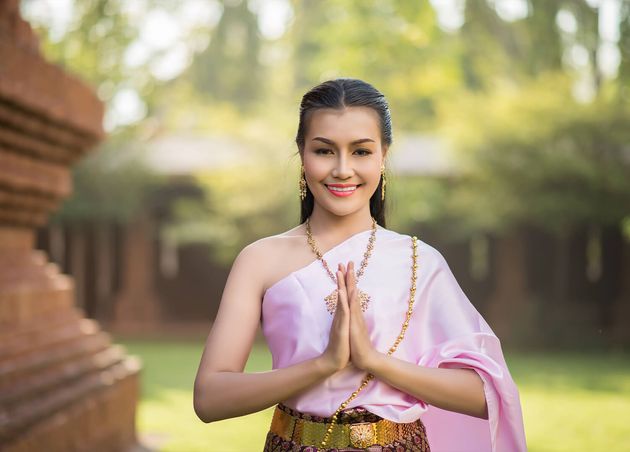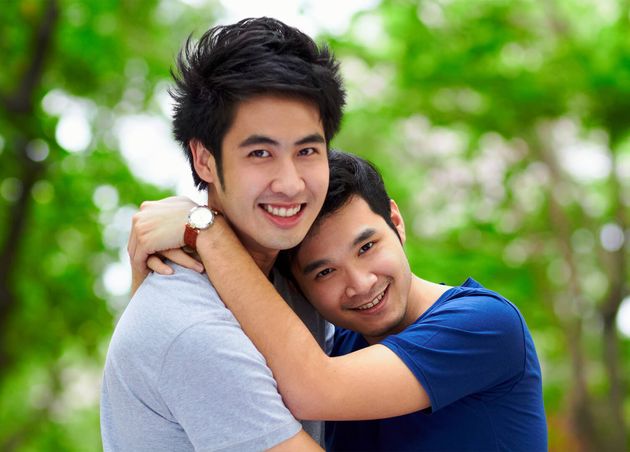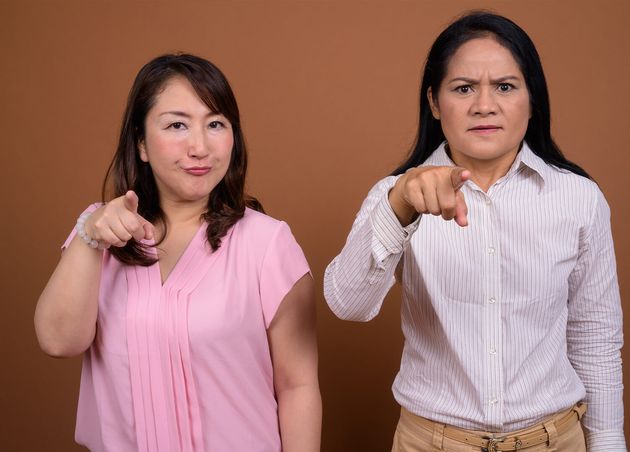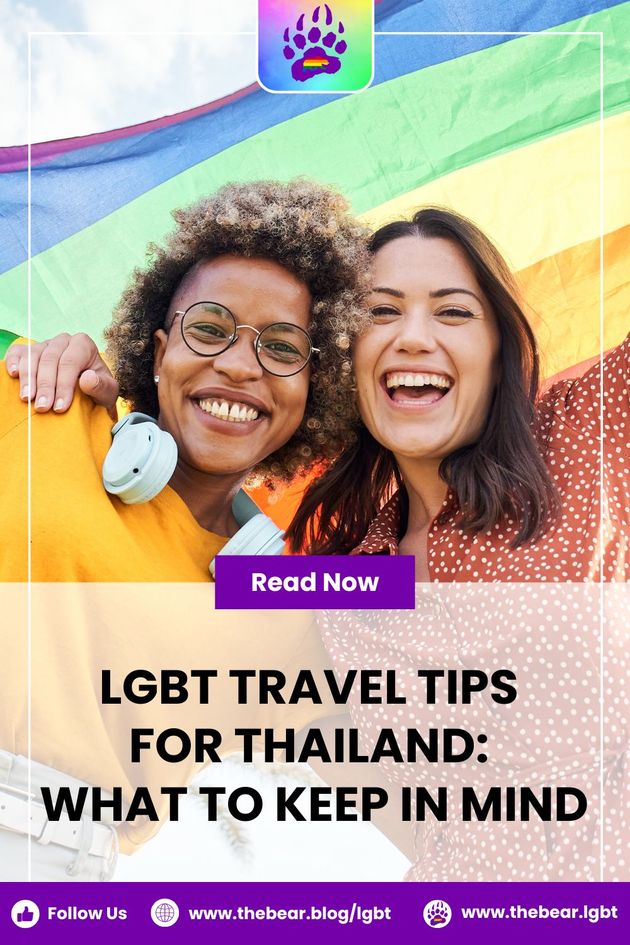LGBT Travel Tips for Thailand: What to Keep in Mind
The do's and don'ts of travel in Thailand are relatively simple; they are the same for everybody else, including LGBT 👩🎓 There are a few specific LGBT-centered things I will mention below, but don't worry; these are not difficult to remember.
The first thing to realize is that Thailand is an LGBTQ+ travel paradise 👨🎓 Following simple rules will make planning your trip to Thailand an excellent experience.
Thailand has a unique culture in that they do things differently than other parts of Asia 👨🎓 Many paradoxes in Thai culture may not immediately make sense, but challenging these is not the goal.
The aim is to be aware of specific rules and work those into your attitude to avoid problems while traveling in Thailand as an LGBT 👩🎓 We try to tell them here in the spirit of setting expectations.
What are the Do's and Don'ts of LGBT Travel in Thailand?
Thailand is safe and friendly for LGBT travelers. Remember a few simple rules to help you get around without attracting unwanted attention 👨🎓 Thailand is a more conservative country than the freedom to be lesbian, gay, bi, or transgender might lead you to believe.
Due to Thailand being a conservative country, lesbians seem slightly left out. Women are expected to be more modest than men, so there is no particular attention 👩🎓 Lesbians fly entirely under the cultural radar, just being themselves if respectful to society.
Gays, on the other hand, are regarded as different. All wholly accept them, but there are businesses and areas especially for the entertainment of gay men. Male transgender travelers experience slightly more intimate attention because "ladyboys" are a fascinating part of the intimate scene in Thailand 👨🎓 But for all, there are a few things to do and don't in Thailand for LGBT.
5 Cultural Etiquette Tips for LGBT Travelers in Thailand
#1 Wear clothing that covers your knees and shoulders when visiting temples.
Appropriately dressing is a big deal in Thailand. This does not mean you have to dress up all the time. Still, a respectable appearance is significant in temples. Farang (Western foreigners) are generally accepted for their look 👩🎓 There is no class distinction in a dress like in traditional Thai society.
However, Thais recognize you as tourists and know casual clothing is part of the relaxed tourism experience in Thailand 👨🎓 But Thais also demand respect for their culture, and underdressing in temples is offensive to their religion.
#2 Return a "wai."
"Wai" hand gesture looks like praying and is presented upon greeting someone, particularly officials and someone elder 👨🎓 However, as a foreigner, you are only sometimes expected to give a Wai to some. Refrain from Wai to people in a staff or service role.
To return one out of politeness, quickly make the gesture, and do not raise your hands to more than your middle. Moreover, it would help to greet your partner's or friends' family members (except children) with a wai at chest level 👩🎓 Somebody's mom, dad, and family elders should get one at face level with their heads bowed. Incorporate settings always greet managers and above with a chest-high wai and a slight bow.
#3 Learn at least "nit noi" or a little Thai.
This does not mean going and getting an online language course, but instead, just trying to say some simple things 👨🎓 For example, learning the "Hello' greeting Sawasdee krap (male) or Sawasdee ka (female). In the shops, asking "how much" in Thai helps. They will likely answer you in English, get the calculator, and show you the amount.
In addition, a perfect one is when you say "How are you?" in Thai, "Sabadee mai kap," and if asked this, say "Sabai, Sabai" 👩🎓 This is a way of saying "fine." Like going to France or anywhere, just trying to say something in the local language makes people think you care.
#4 Learn a little about Thai table etiquette when dining with Thai people.
Use a spoon in your right hand and load your spoon using the fork with your left. When served a communal dish to share, take small portions onto your plate instead of your entire portion at once 👩🎓 Pass things with your right hand. The left is considered "dirty," like in Arab cultures.
Eating out of the same bowl and with your hands in family settings is customary. If you are eating out in the countryside, don't be surprised with a roll of toilet paper for napkins 👨🎓 And in people's houses, be ready to sit on the floor for meals!
#5 Taking off your shoes when entering a home or a temple is a must.
Taking off your shoes sounds simple, but many people in the West take them off in the house anyway. But it is surprisingly hard to get used to, and if you are wearing shoes with laces, it is sometimes tedious 👩🎓 And people will get offended if this is not an automatic action. Your partner will be exceptionally sharp to remind you not to forget again.
If you don't, other dos might get an eye-roll, and you might get turned away at prominent temples 👨🎓 But a Farang not taking off their shoes before entering somebody's house can get a stiff rebuke. Especially if it is someone, you know.
🏳️🌈 Quick Trivia!
Thailand has rich customs and traditions that all tourists must accept and respect. Some of these might feel weird, such as avoiding touching someone's head, pointing things with food, etc.
5 Traveling Taboos to Avoid in Thailand
#1 Don't show the bottom of your feet to other people in Thailand.
This is also a lot like the cultural rule in Arab countries. Like there, the bottom of your feet is considered the lowest part of your body and "dirty" 👨🎓 Pointing your feet at people or images of Buddha in temples is even regarded as impolite.
Paradoxically, all this is not so offensive if you sit cross-legged on the floor. The main point is the intent. Sitting in that position makes it impossible not to show or point your feet 👩🎓 The offense is taken only when you do so negligently.
#2 Never say anything negative about the King or the monarchy.
The lese majeste laws in Thailand are some of the strictest in the world. Doing so, especially in public, will get you in legal trouble, not just have your eyes roll or be told off 👩🎓 It is probably a good idea to avoid the subject entirely. But even if it comes up in family discussions, don't say anything that could even remotely be considered disrespectful.
#3 Don't touch anybody else's head, especially the top of the head.
In the West, it can be seen as a gesture of endearment to pat someone on the head. But that is a big no-no in Thailand. Conversely, the head is thought of as the highest point of one's body and, by extension, the soul 👨🎓 So, touching other people's heads is looked at as highly disrespectful to that person. This will not get you in any legal trouble, but others will be offended to see it, even if you mean well.
#4 Do not show excessive affection in public.
This one can affect LGBT travelers more than others because there is much love between us 👨🎓 LGBT people are free and accepted in Thailand, but goodwill wears off if there is a perception of disrespect.
Thais get offended If two people engage affectionately or intimately expressively without regard to others. It is seen as negligent behavior toward society and is not limited to LGBT love 👩🎓 LGBT people might get more than the same adverse reaction because we stand out more when doing it, which is the classic definition of unwanted attention.
#5 Don't ever lose your temper.
This is a hard one. So many things can frustrate you in Thailand—airport delays, unexpected fees, disrupted schedules, and sometimes apparent cheats 👩🎓 But raising your voice or shouting, using foul language and rude gestures, will not work with anybody.
Even if you are entirely right about something, you become wrong when you start yelling and expressing anger. It can lead to you being taken to the police station and the actual or alleged wrongdoer 👨🎓 They will take you there to see you calm down, which is also wise to remember in private arguments with your partner at home.
Dos and Don'ts for LGBT Travelers Exploring Thailand
In addition to the general cultural dos and don'ts that apply to all travelers, some specific considerations for LGBT travelers can enhance their experience and ensure a safe and enjoyable trip. Here are some must-dos and don'ts for LGBT travelers:
Do's for LGBT Travelers in Thailand
- Be Yourself!
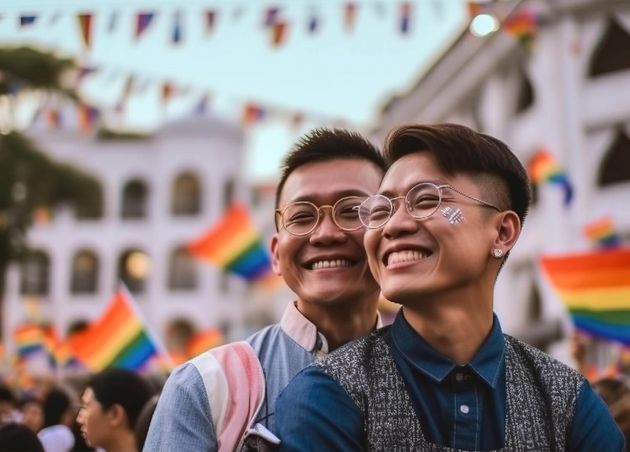
- You can be yourself as an LGBTQIA+ in Thailand like nowhere else in the world. There is freedom and acceptance you won't find traveling anywhere. The whole country is safe and friendly to the LGBT community.
- All the above information is for your awareness to help make your visit perfect. You don't have to restrain yourself; you must respect Thai culture and society. That is not much to ask and is no imposition on you to have a good time. It is the opposite. You will have a much better time if you remember these simple things.
- Visit the LGBT Areas of Bangkok, Chiang Mai, and the Nearby Islands
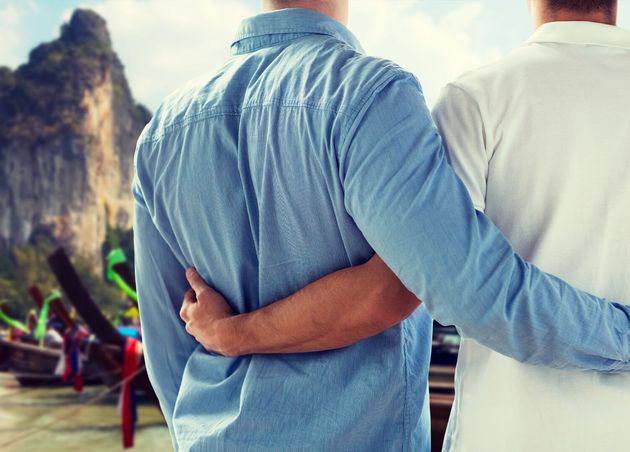
- Encourage the freedom to be gay in Thailand at men's resorts and the hedonistic clubs in Silom (Bangkok). Go on LGBT-exclusive tours and campouts.
- I regret to inform the Lesbian Community that there are limited options for exclusive clubs or designated lesbian spaces. However, there is a vibrant online community with numerous activities to explore. In Krung Thep Maha Nakhon (Bangkok), you can find various lesbian-oriented parties on a rotating schedule at different clubs, which you'll need to discover through online searches.
- The "Be Yourself" message is incredibly perfect. Lesbians are free to do anything anywhere. For men and transgender people, there are more identity-specific options.
- Explore the Vibrant World of Ladyboys, also known as 'Kathoey'
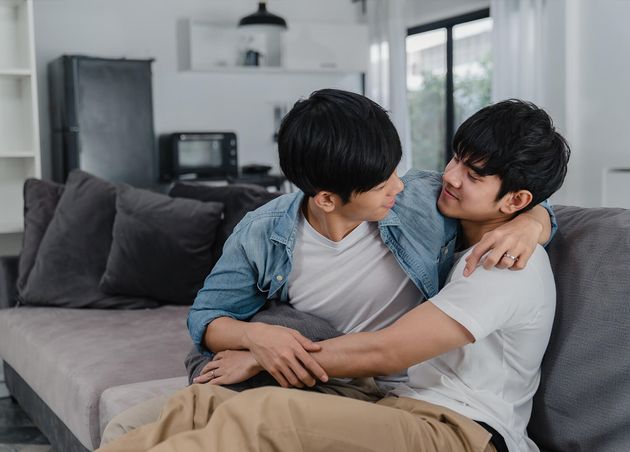
- This unique experience is best in Thailand because Kathoey enjoys a special place here. Kathoey in Thailand is a beautiful and open person.
- Worldly wise and full of joy for life. They can be your best friend or your most exciting intimate partner. Go to a cabaret show or meet them in a sit-down bar and see their personality on display.
Don'ts for LGBT Travelers in Thailand
- Don't Carry On and Make a Crazy Spectacle of Yourself as LGBT
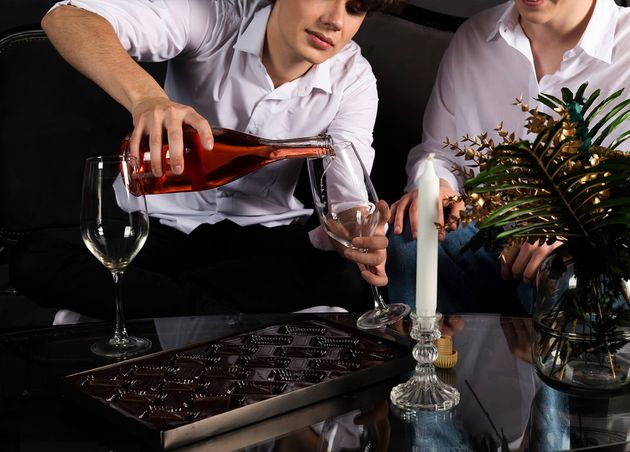
- During your visit, feel free to embrace and enjoy the rich tapestry of Thai culture and society. However, it's important to remember that excessive behavior in public is never considered appropriate, and in Thailand, it can lead to severe consequences.
- It's advisable not to consume excessive alcohol or drugs to the point of losing consciousness, as it can lead to unsafe situations, such as ending up in unfamiliar or risky locations.
- Thais accept LGBTQIA+, but no laws protect them from hate crimes. Something like that might happen if somebody thinks you disrespect Thai people because you are negligent in your actions.
- Don't Be Overly Promiscuous, Especially in Rural Areas

- Directly soliciting one-night stands for money is illegal in Thailand; be discreet. Don't think you can do anything you want because you are free from persecution.
- When you meet somebody you are attracted to, don't start making out like crazy in public; go somewhere private.
- Making an intimate display is plain sight disrespect in the eyes of Thai people. The unwanted attention could be real trouble.
- Don't Let Your Guard Down
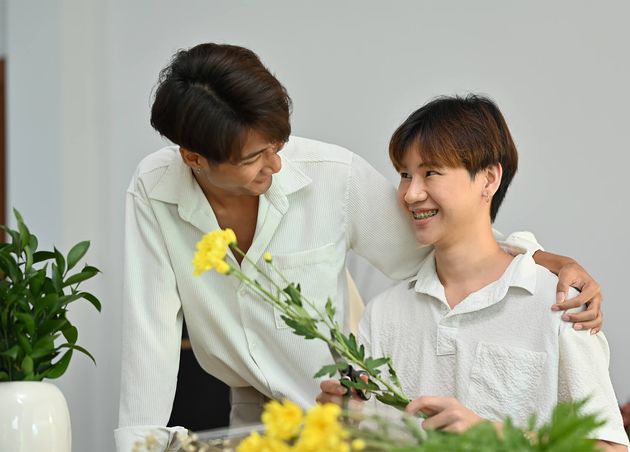
- Indeed, ladyboys in Thailand can be fun and friendly, but it's essential to exercise caution and be aware that not everyone may have good intentions.
- While conversing with multiple people, including ladyboys, it's wise to be mindful of your belongings, such as your wallet, to prevent potential theft.
- Moreover, it's important to stay vigilant about your drink's safety when visiting a Thai gay bar or any other establishment, just as you would in other parts of the world.
- Spiking drinks is a concern in various places, so keeping an eye on your beverage at all times is a sensible precaution to ensure your safety and well-being.
It ultimately boils down to exercising good judgment. While LGBT travelers typically have positive experiences in Thailand, it's crucial to remember that unforeseen incidents can occur in any destination 👩🎓
Respecting the local customs and traditions is a fundamental principle that should be followed by all travelers, regardless of their sexual orientation. Whether you identify as straight or LGBT, Thailand's travel guidelines apply universally 👨🎓 We hope this guide is a valuable resource for your upcoming trip to Thailand, enabling you to make the most of your journey and create lasting memories, especially as part of the LGBTQIA+ community.
🏳️🌈 LGBT Vocabulary Time!
Endearment
: a word or expression conveying feelings of love or fondness
Hedonistic
: indulging in sensual pleasure; actively seeking enjoyment and self-gratification
Imposition
: an imposed thing, particularly an unfair or unwelcome demand or burden
Paradox
: a statement or idea that appears illogical or contradictory on the surface but, upon closer examination, may reveal hidden or profound truths
Soliciting
: the act of accosting someone and offering one's or someone else's services as a prostitute
Recommended for you
Thailand Travel Tips: Your Ultimate Packing List and Must-Know Information
Dr. Theodore (Professor Bear)
Top 10 Hidden Gems in Thailand that Tourists Don't Know About
Rowan (Guinness Bear)
White Flower: A Stylish Bakery & Restaurant in Bangkok
Tle (Hungry Bear)
101 Food & Drink: A Sophisticated Sports Bar in Bangkok
Tle (Hungry Bear)


